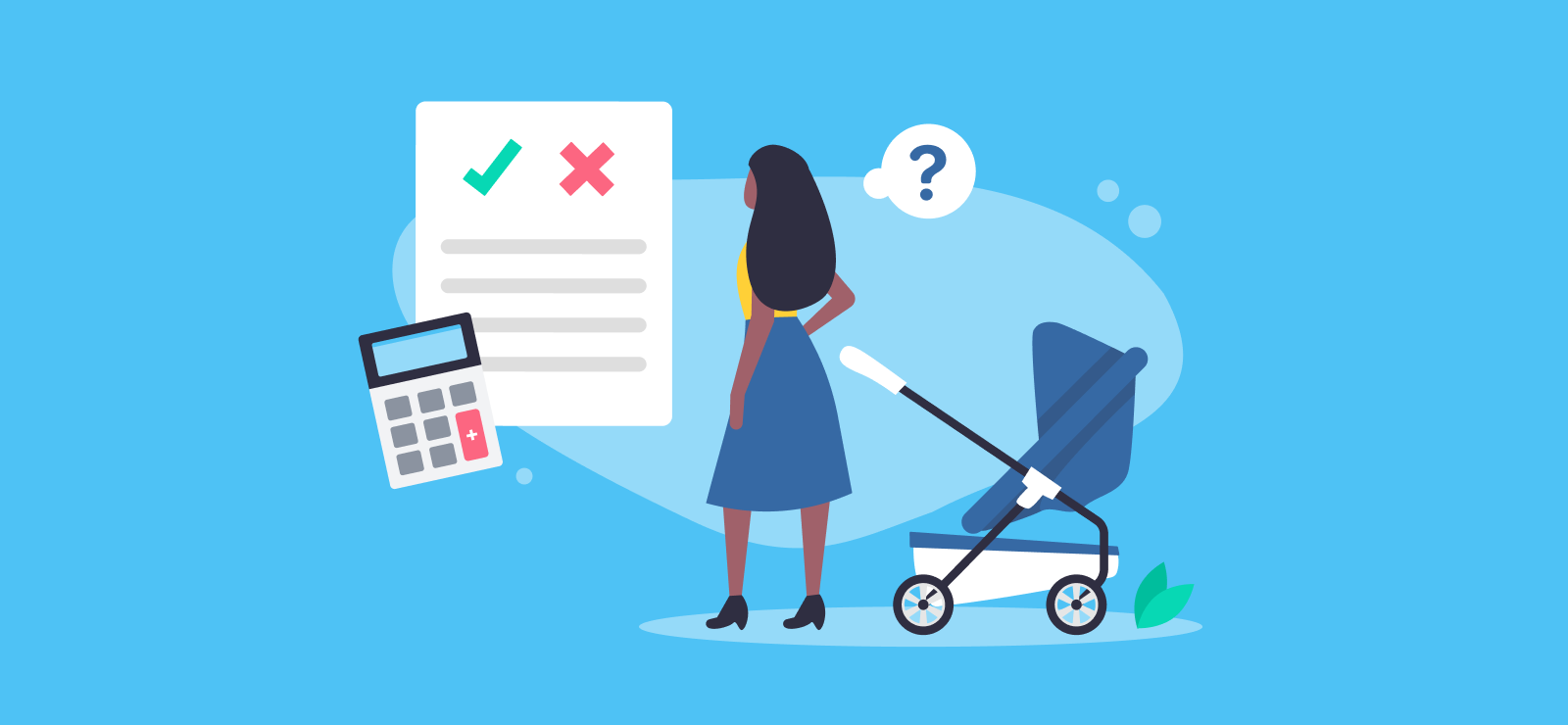

Employed or Self-Employed; which is better?
Being your own boss is hard work, but it can also be extremely rewarding. That being said, running a business isn’t for everyone. So, which one is better?
Well, there’s no ‘better’ option in a universal sense. It really depends on the individual, their circumstances, and priorities. Other things need to be factored in too, like the type of industry they’re in, (as some day rates will be a lot higher than others) as well as how successful they’re likely to be employed, versus self-employed.
But while we can’t give you a definitive answer, we can discuss the pros and cons so you can decipher which option may be best for you.
What is the difference between being employed vs self-employed?
In a nutshell, if you’re an employee, you work for someone else. If you’re self-employed, you’re your own boss. From a tax standpoint, there are huge differences. For example, an employee will have their income tax and National insurance deducted from their payslip – whereas a self-employed individual will be responsible for their own taxes.
It doesn’t stop there. A self-employed individual can usually set their own rates, and work when they want. Someone employed will have a set salary, and will most likely have less flexibility when it comes to when and where they work. But on the other hand, they’ll receive benefits such as pensions contributions and paid annual leave. We’ll come back to that point.
What are the pros and cons of being self-employed?
Being self-employed is not easy – and you’ll often find the promise of ‘financial freedom’ all money gurus preach online a little far-fetched. At least at first!
But it does offer you the freedom to work when you choose, as well as giving you access to unlimited earning potential – because you set your rates and decide how many, or how few, projects you’d like to take on.
The way you report and pay tax
We briefly mentioned that employees don’t have to worry about tax calculations because their employers sort everything out through payroll. If you’re self-employed, it’s all on you. You’ll need to submit tax returns to report how much you get, and it’s your responsibility to ensure you pay tax correctly. No pressure though, an accountant can always help!
In order to report your earnings accurately, you need to keep records of everything. Keeping digital records is increasingly the norm, especially with the arrival of Making Tax Digital making it compulsory for some taxpayers. This is already in effect for VAT-registered businesses (MTD VAT) and will soon roll out for MTD Income Tax – replacing the Self Assessment system as we know it.
Tax is a little different depending on the type of legal business structure you choose, so make sure you chat to an accountant to understand what’s the most tax-efficient option for your business. Always ensure you know what’s legally required of you before making your final decision.
Earning potential
One thing we get asked a lot is ‘will I earn more employed, or self-employed?’ The answer is – it really depends. Sorry, but there really isn’t a clear-cut response! Huge factors come into play, like the industry you’re in, how much you charge, and how many clients or customers you have.
Some people start off freelancing as a side hustle first, until they get to the point where they have enough clients to leave employment for good. For some people, going self-employed is a no-brainer.
Let’s say you’re an employed hairdresser on minimum wage. You also have a large following on social media for your work and regularly get messages asking if you’d ever branch out to mobile hairdressing. Going self-employed would mean setting better rates for yourself and giving yourself the freedom to decide how many clients you’d like to take on per day. You would need to consider travel expenses, as well as equipment and products – but all of these will fall under allowable business expenses.
Benefits and perks
As well as paid annual leave and a workplace pension, some employers offer things like health and dental insurance. Whilst you don’t get this if you’re self-employed, you could be earning enough to put money aside for all of these things.
Self-employed individuals can also set up their own pension. You might even have various perks written up in your contract – but that would be a discussion for you and your client.
Job stability
To be fair, nothing in life is certain – and that includes any job. Many people will be split on which offers you more protection. On one hand, if you’re self-employed, you’re responsible for finding your own work – with no one above you making decisions that you can’t control.
But on the other, it is much easier for clients to part ways with a freelancer or contractor than it is for an employer and employee. Along with all sorts of employment law protections, employees are entitled to redundancy pay after two years of working at the company. It all depends on how you look at it. If you’re a good networker, you may find working for yourself more reliable.
Mortgage applications
Applying for a mortgage is stressful, and even more so if you’re self-employed. That’s because you need to prove you have a sold stream of income before any lenders consider loaning you a load of cash! It’s not always that straightforward if your income tends to fluctuate – and it does for most self-employed people.
At this point you might find having an accountant makes it less complicated. They’ll help you compile your financial records into reports which make sense of what you earn, and forecast how this is likely to look in the future. You can also speak with a mortgage broker who specialises in self-employed mortgages. Don’t be put off though – it is completely possible. Read our guide to applying for a mortgage when you’re self-employed.
Maternity, paternity, and parental leave
As an example, employed individuals are usually entitled to take 39 weeks of maternity pay, and up to 52 weeks of maternity leave if they’ve worked for their employer for at least 26 weeks by the end of their ‘qualifying week’. The ‘qualifying week’ is the 15th week before your child’s due date.
As a self-employed person you might be able to claim Maternity Allowance depending on your National Insurance contributions, but this won’t happen automatically, so you’ll need to apply for it.
Unfortunately, there isn’t any official provision for paternity pay if you’re self-employed. It means there’s even more pressure to save money, and to be clear to clients about when you expect to be absent.
Work life balance
You’re often told going self-employed means you have the time to pick and choose when you work. Which is true! It offers you more freedom to go to your child’s sports day, meet your friend for lunch, and even go to doctors and dentists’ appointments without having to ask your boss if you can extend your break.
At the same time though – you need to ensure you’re earning enough money to keep everything afloat. It may mean working hours you don’t want to at times, or taking on more work than you’d like.
A lot of self-employed individuals say they never take time off, especially when they are the business – but there’s definitely a balance you can build once you’re up and running. Setting clear working hours for your clients will definitely help you along the way, to ensure their expectations are met.
If you’re employed, you can submit a flexible working request where your boss may allow you to work the same hours but fit them around your busy schedule. You can also request to work from home.
When do I need to declare my self-employment?
This depends on what sort of business structure you set up! You can learn more about choosing a business structure and the deadlines for registering it in our article.
Learn more about our online accounting services for businesses. Call 020 3355 4047 to chat to the team, and get an instant online quote.
Want to learn more?
Subscribe to our newsletter to get accounting tips like this right to your inbox

Read more posts...

How Do Footballers Pay Tax?
24th February 2026We all know top-flight footballers do alright. But how does tax work for professional footballers? Is it treated as self-employed income, or…
Read More
The Accountancy Partnership – Our Positive Reviews
16th February 2026We’re proud of our customers’ reviews here at The Accountancy Partnership The reviews we receive from our customers show how hard we…
Read More
Maternity Pay for Self-Employed People
15th February 2026As a self-employed person you might be eligible to get Maternity Allowance payments for up to 39 weeks. It’s different to Statutory…
Read MoreConfirm Transactions
The number of monthly transactions you have entered based on your turnover seem high. A transaction is one bookkeeping entry such as a sale, purchase, payment or receipt. Are you sure this is correct?
Please contact our sales team if you’re unsure
VAT Returns
It is unlikely you will need this service, unless you are voluntarily registered for VAT.
Are you sure this is correct?
Call us on 020 3355 4047 if you’re not sure.
MTD IT Quarterly Updates
Your final, end of year MTD Income Tax submission is included in your fee, without this add-on service.
We would recommend you submit the quarterly updates yourself using Pandle or alternative bookkeeping software.
However, if you would prefer us to submit these quarterly updates for you, there is an additional fee of £35.00 per month.
Call us on 020 3355 4047 if you’re not sure.
Bookkeeping
You will receive our bookkeeping software Pandle for free, as part of your package.
You can use this to complete your own bookkeeping, or we can provide a quote to complete your bookkeeping for you.
Please select and option below:
Call us on 020 3355 4047 if you’re not sure.

